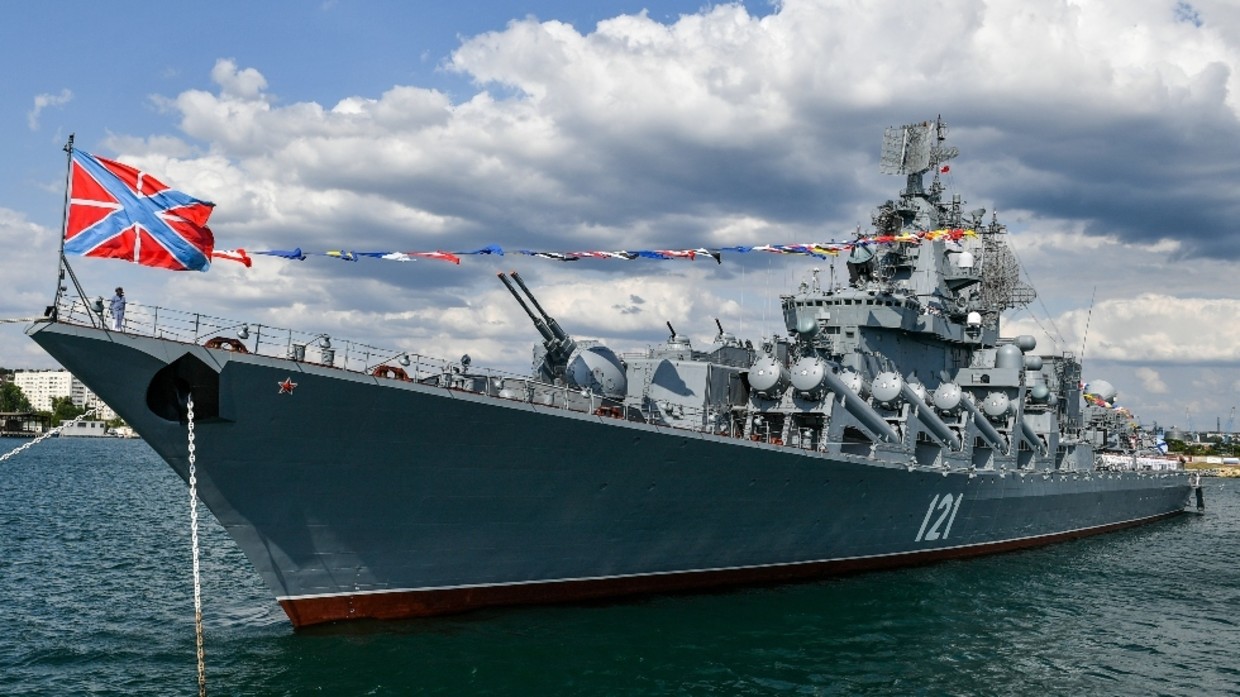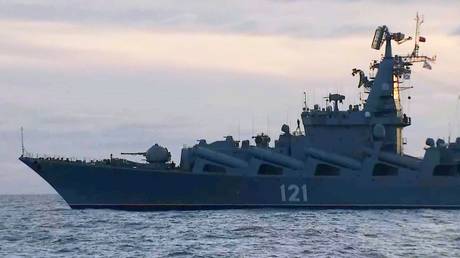The blaze that broke out aboard the Russian missile cruiser ‘Moskva’ in the Black Sea late on Wednesday has been localized and the crew is safe, the Defense Ministry, in Moscow, reported on Thursday.
The flagship of the Black Sea fleet, which is taking part in the country’s military operation in Ukraine, remains afloat. Its main missile armaments haven’t been affected by the blaze, officials outlined.
“There isn't an open fire. The detonation of armaments has ceased,” the ministry announced in a statement on Thursday.
The Atlant-class guided missile cruiser, which was commissioned in 1983, carries 16 anti-ship missiles and many more air-defense missiles, torpedoes and guns.
Measures are being undertaken to organize the towing of the 12,490-ton vessel to port, the ministry said, adding that the cause of the fire being investigated.
Several Ukrainian officials had earlier boasted that a battery of their Neptune anti-ship missiles hidden in the area near the port town of Odessa had successfully struck the Moskva twice, setting it ablaze. However, they provided no proof if their claims, with the images of the burning vessel distributed on social media turning out to be fake.
Russia’s Ministry of Defense said earlier that the fire aboard the Moskva had been likely caused by an ammunition explosion. The cruiser had suffered “serious damage,” while its crew was safely evacuated to other ships in the area.
The Pentagon commented on the incident on Thursday evening, saying that there was “at least one” explosion on the Russian cruiser that was a “fairly major one” and “caused extensive damage.” The US military believes that the ship is now heading to the Crimean port of Sevastopol for repairs, the Pentagon’s press secretary, John Kirby told CNN's Brianna Keilar.
Ukraine had already claimed, last month, to have sunk the Russian patrol boat Vasily Bykov, only for the vessel to show up in Sevastopol unharmed a few days later.
Russia attacked its neighbor in late February, following Ukraine’s failure to implement the terms of the Minsk agreements, signed in 2014, and Moscow’s eventual recognition of the Donbass republics of Donetsk and Lugansk. The German and French brokered Minsk Protocols were designed to give the breakaway regions special status within the Ukrainian state.
The Kremlin has since demanded that Ukraine officially declare itself a neutral country that will never join the US-led NATO military bloc. Kiev insists the Russian offensive was completely unprovoked and has denied claims it was planning to retake the two republics by force.


